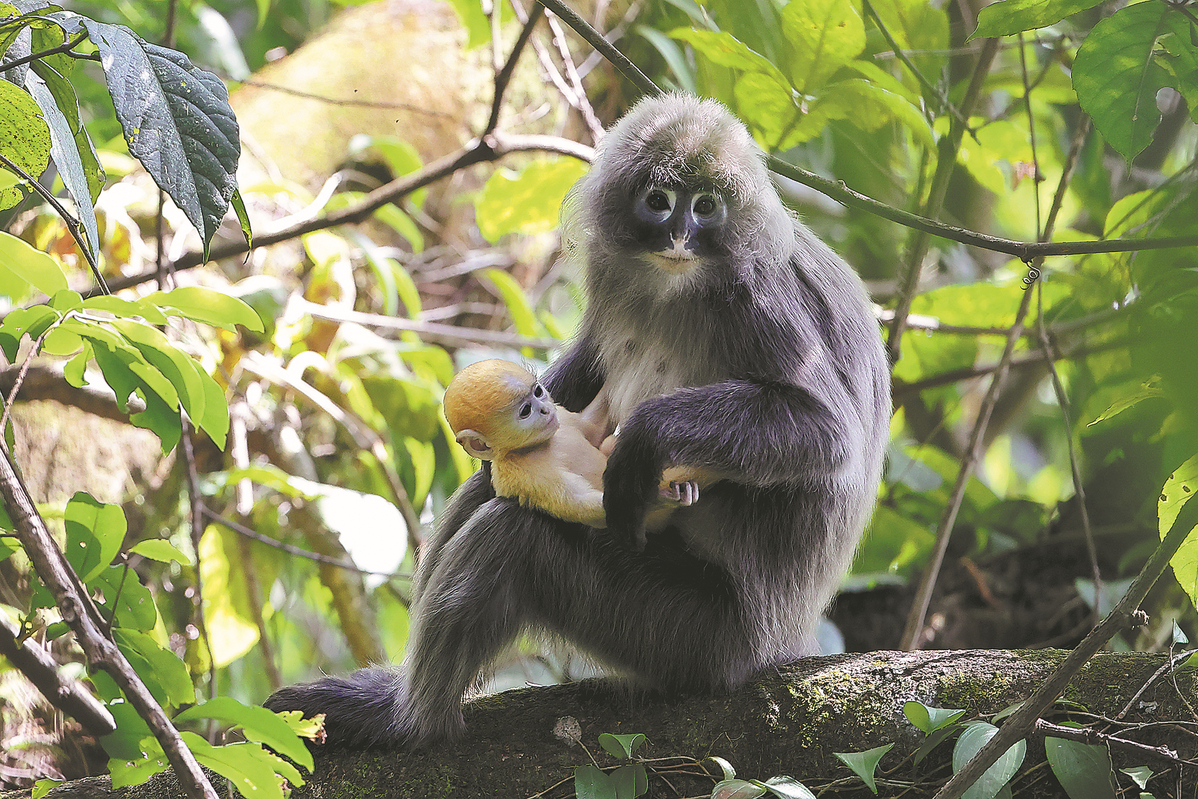Yunnan villagers make the most of monkey business
Guiding photographers into forest to snap shots of endangered langurs can be lucrative. Chen Liang reports.


Monkey guides' routine
Every morning in December, Huang leaves his four-story house in Yangguang village at around 7 am to try to locate the langur troops as early as possible. It's not an easy job, or one that he can do alone.
Yang and several fellow villagers established a conservation monitoring team with the support of a local conservation NGO, and the focus of their conservation efforts gradually expanded to include other protected species in the area such as the bearcat, macaque, serow, clouded leopard and giant flying squirrel.
The team's diligent work has received recognition and support from local government departments and research institutions. In November 2021, they established the Mangxing River Natural Ecology Conservation Association, with Yang elected its leader.
Yang and members of his team have often joined Huang's patrols to monitor the langurs in the forest.
"We work together to keep a close watch on the monkeys," Huang said. "As a result, we split the earnings generated from visiting photographers."
They charge 200 yuan per person per day, with locating the monkeys a precondition for payment.
After receiving a message from her husband detailing the langurs' location, Wang, 39, accompanies the customers to meet with Huang and his friends. Once they find the langur troop and the customers start taking photos of the monkeys or observing them, she heads back to the family's small plantation of dendrobium orchids, treasured herbs in traditional Chinese medicine.
The 3,300-square-meter farm is located on the mountain near the leaf monkeys' habitat. While there, Wang cooks lunch for her customers, charging them 30 yuan for a lunch box.
Huang's responsibilities extend until his customers are satisfied with their photos and conclude their day. Typically, that occurs around 4 pm.























